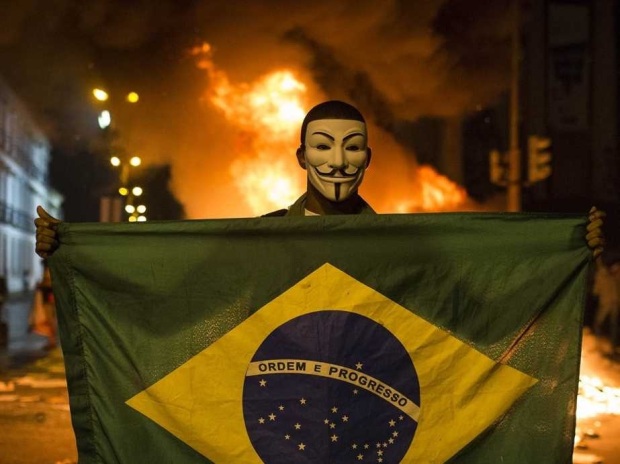Who really runs our governing body?
Who really runs our governing body?
In less than a month the ‘carnivale’ will begin, with hundreds of thousands of fans expected to descend upon the vibrant streets of Brazil as the world comes to a standby in anticipation of ‘the greatest show on earth’. But along with the protests and anguish, the question must be asked: Who really runs our governing body?
It’s difficult to believe how the jubilation and vibrancy within football’s most exciting country has turned into the violence and despair that is visible on the streets of Rio de Janeiro today. The latest unrest has raised worldwide debate on whether Brazil is economically and politically stable enough to successfully host the World Cup. Many have shown their disgust at the £6.5 billion price tag of hosting the tournament by arguing that the money should be spent on social projects and housing.
Is it FIFA’s responsibility as governing body to better advise nations or is it Brazil’s authorities that are responsible for over-zealously securing the World Cup in 2014 and the Olympics in 2016? Should we as football supporters be allowed to know who is behind the ‘FIFA Executive Committee’s secret vote’ and be allowed to know who is really calling the shots? Many have questioned the validity of these ‘secret’ votes and the arrival of the World Cup comes in the wake of corruption allegations within FIFA that have shaken the association to its foundations. The man who many believe to have had the responsibility for deciding the destination of the 2022 World Cup; Jack Warner, was allegedly paid £720,000 by a Qatari company owned by fellow FIFA member Mohamed Bin Hammam in return for a vote. Somehow the World Cup was awarded to an oil-rich country that has no footballing pedigree, no existing stadiums, and the city where the final will be held does not yet exist. It’s difficult to rule out any involvement from Sepp Blatter, but the last person to accuse Blatter of corruption was former FIFA executive Michel Zen-Ruffinen, who was promptly sacked and investigated for similar allegations. The feeling amongst many football supporters is that FIFA needs a pragmatic and brave new leader that can reform the federation to rid it of the corruption that has tarnished its image and to start caring about the game we all know and love. For a successful example that could be emulated, look no further than the NBA’s Adam Silver.
Mr. Silver had been NBA commissioner for little less than three months when he was immediately thrown into the deep-end by a race scandal involving one of the NBA’s most influential owners. A recording of Donald Sterling (the owner of the L.A Clippers) ranting at his girlfriend for ‘associating with racial minorities’ spread like wildfire throughout the media and the NBA and Adam Silver were quick to act. Within days a $2.5 million fine was handed out as well as a complete ban on any intervention by Sterling in the L.A Clippers. It took Adam Silver 3 months to stamp out a defining career moment while FIFA’s long serving President Sepp Blatter dwelled for almost a decade on whether goal-line technology should be introduced. Silver condemned Sterling’s views, by stating that “they simply have to place in the NBA” while Blatter has ironically stated that “there is no racism in football”. But dare we compare two men and two sports that have distinct differences ranging from the history and constitution of the game down to the size, colour and weight of the ball? Or does the ‘beautiful game’ need an injection of youthful exuberance that has been lacking to eradicate the outdated values within FIFA and ensure that slogans such as ‘say no to racism’ are taken seriously and the best interests of the sports and supporters are met.
